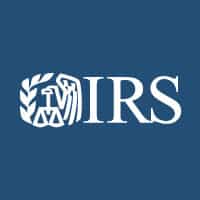
1099-K forms
Congress passed legislation in 2021 that required Third Party Settlement Organizations (TPSOs) such as Venmo, Zelle, and Cash App to issue 1099-K forms to payees who receive $600 or more in a tax year. While the IRS delayed implementation of the legislation for the 2022 and 2023 calendar years, it is not likely the IRS will delay implementation of the legislation again. As such, TPSOs including Venmo, Zelle, and Cash App will most likely start issuing 1099-Ks to payees for the 2024 calendar year.
TPSOs similar to Venmo, Zelle, and Cash App are only supposed to issue 1099-K forms to people who receive money through the TPSO in exchange for goods and services. This means businesses that use TPSO apps including Venmo, Zelle, or Cash App to accept payments from customers should receive 1099-Ks. However, 1099-Ks should not be issued for personal transactions such as friends using a TPSO to split a check at a restaurant or roommates using a TPSO to reimburse each other for rent or utilities. The IRS’ FAQs provide suggestions on how taxpayers may report erroneously issued 1099s on their tax returns.
We would like to offer the following tips for people using TPSOs like Venmo, Zelle or Cash App.
1. Use a Business Account and Do Not Comingle. Even before the advent of TPSO apps Venmo, Zelle, and Cash App, people who owned a business (or had a “side hustle” they may not have considered a fully fledged business) should have always used separate business accounts for their business activities to avoid comingling funds. While TPOS Apps including Venmo, Zelle, and Cash App give business owners, independent contractors, gig workers, and people with a side hustle great flexibility in handling payments and receipts, it is imperative to maintain separate business accounts and avoid comingling transactions.
Business owners (who include independent contractors, gig workers, people with a side hustle) should have their payments from the Apps go to their business account(s). They should use their personal bank accounts for personal transfers like splitting a restaurant check with friends or splitting housing costs with roommates.
2. Put a Memorandum on Transfers. It would be helpful to label fund transfers to identify the intended purpose. For example, a personal transfer could be labelled “restaurant check” or “my share of rent or utilities.” Likewise, if you are going to make payments for business purposes, a memorandum such as “Payment to XYZ Corp. for supplies” should help substantiate business expenses paid using an app. (You should of course keep copies of receipts as well!)
3. Do not Ignore the 1099-K. when completing your tax returns, you should certainly report all income you receive regardless of whether it is reported on your 1099-K. Make sure any amounts reported on your 1099-Ks are accurately reported on your return including any erroneously file 1099-Ks. Make sure your accountant or tax preparer knows about any and all 1099-Ks you have received.
The experienced tax attorneys at RJS LAW assist individuals and businesses with a wide range of tax problems. If you have an issue involving 1099-Ks or any other tax related problem, please contact our office on the web or by calling 619-595-1655 for a free consultation.
Written by Joseph Cole, Esq., LL.M.

Leave a Reply